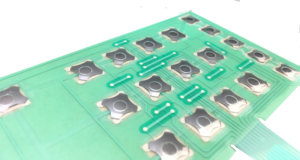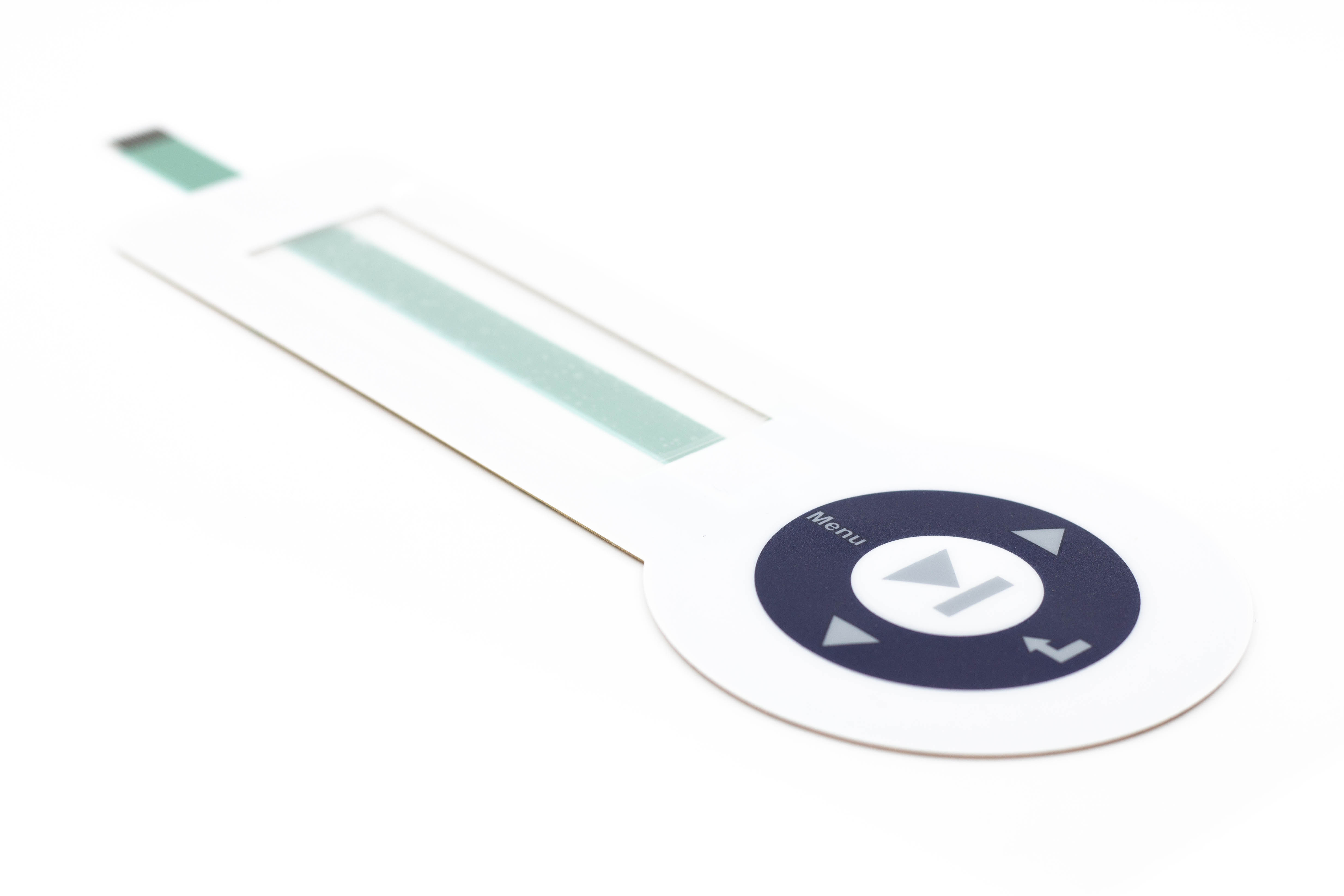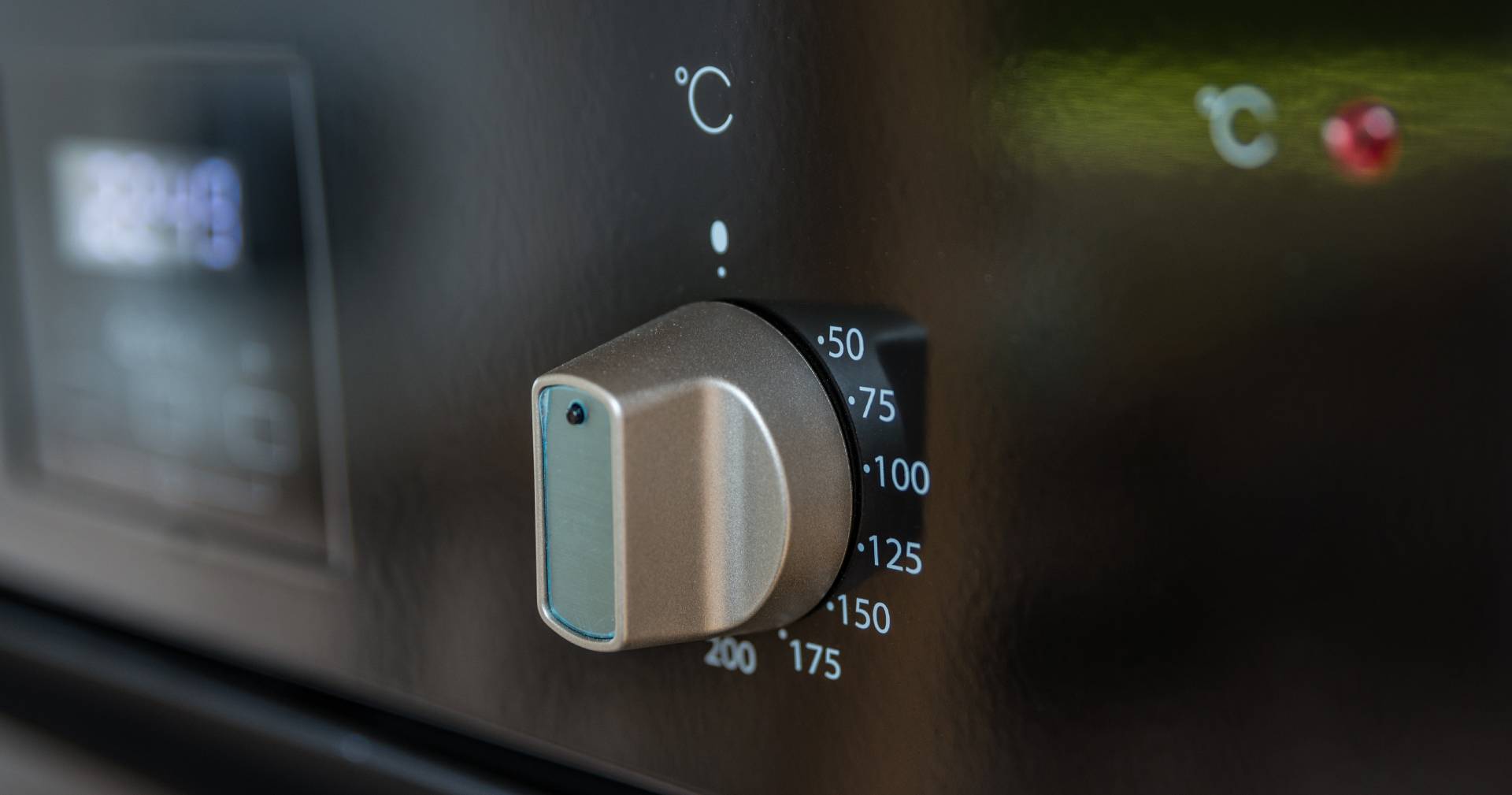How Membrane Switches Are Designed for Easy Maintenance and Repair
How Membrane Switches Are Designed for Easy Maintenance and Repair
Blog Article
Recognizing the Value of Membrane Switches in Individual Interfaces
Membrane buttons are essential components in the layout of efficient interface, facilitating not only performance however also boosting aesthetic appeal and user interaction. Their special functions, such as resistance to environmental aspects and customizable designs, make them suitable for a varied variety of applications throughout several sectors. As we check out the future trends and different advantages connected with Membrane innovation, it becomes clear that these buttons are a lot more than just components; they stand for a merging of technology and usefulness. The implications of this technology on individual experience are worth taking a look at even more.
What Are Membrane Switches?

The spacer layer, which includes adhesive homes, permits the splitting up of the circuit layer from the overlay, ensuring that the switch remains in a non-activated state until pressed. When pressure is put on the overlay, it compresses the spacer layer, bridging the void and finishing the circuit in the underlying layer. This design not just decreases the physical room needed for typical mechanical buttons but also improves the longevity of the tool, as Membrane switches are typically resistant to dirt, dampness, and other ecological aspects.
Typically found in applications varying from consumer electronic devices to medical tools, Membrane buttons are essential to modern-day technology, giving a effective and user-friendly user interface that aligns with modern layout demands.
Benefits of Membrane Buttons
While numerous switch modern technologies exist, Membrane Switches deal distinct benefits that make them specifically desirable in different applications. Among the main advantages of Membrane switches is their small layout, which enables space-saving applications in tools where property is limited. Their slim account not only improves visual appeal but likewise promotes lightweight building.
An additional significant advantage is their resistance to ecological variables. Membrane switches are usually secured versus moisture, dust, and pollutants, making them excellent for use sought after atmospheres, such as clinical tools and industrial equipment. This toughness expands the life-span of the button, reducing maintenance costs and improving dependability.
Additionally, Membrane buttons can be tailored to fulfill specific design requirements, integrating distinct graphics and colors that improve individual communication. Their tactile comments choices can likewise be tailored to supply a gratifying individual experience. Furthermore, Membrane switches are cost-effective, particularly in high-volume applications, as they can be produced successfully.
Applications in Different Industries

In the customer electronic devices field, Membrane switches prevail in gadgets such as microwaves, cleaning machines, and remotes. Their tactile comments and aesthetic choices improve customer experience while supplying a streamlined, contemporary look. Additionally, automotive manufacturers make use of Membrane switches in control panel controls and infotainment systems, where space is limited, and customer interaction is critical.
Additionally, the industrial market leverages Membrane switches in control panels for equipment and equipment, enabling instinctive procedure in commonly rough environments. Their resistance to chemicals and moisture ensures durability and integrity in these applications. Overall, the versatility of Membrane Switches adds considerably to their prevalent usage, making them essential in different technological domains.
Design Factors To Consider for Membrane Switches

When creating Membrane buttons, several key factors to consider should be taken into account to make sure ideal capability and this contact form customer experience. The option of products is important; picking sturdy, top notch substrates can enhance the button's longevity and resistance to environmental elements such as moisture and temperature level changes.
Secondly, the layout of the visuals overlay ought to prioritize clarity and convenience of usage. Symbols and message should be legible, and the design ought to promote user-friendly interaction (membrane switches). Furthermore, responsive responses is necessary; including a tactile dome or various other mechanisms can enhance the user experience by giving physical verification of activation
Another essential factor is the switch's electric efficiency. Designers should ensure that the conductive traces are properly created to decrease resistance and avoid signal disturbance. This entails analyzing the required actuation force and guaranteeing compatibility with the digital parts they will certainly Web Site user interface with.

Future Trends in Membrane Innovation
As technology remains to development, Membrane buttons are poised to progress substantially, driven by innovations in materials and making techniques. One emerging fad is the incorporation of innovative materials, such as conductive inks and versatile substratums, which improve resilience and lower the general weight of Membrane switches. These products not only improve the responsive response but likewise permit the design of switches that can stand up to harsher ecological problems.
Furthermore, the combination of touch-sensitive innovations is changing typical Membrane Switches right into more interactive interface. Capacitive touch sensors embedded within Membrane switch panels can provide a more responsive and user-friendly individual experience, straightening with the expanding need for streamlined, modern-day layouts in customer electronic devices.
In addition, advancements in printing techniques, such as digital and 3D printing, enable rapid prototyping and customization of Membrane buttons. This adaptability permits suppliers to react quicker to market needs and customer preferences.
Lastly, sustainability is becoming a significant emphasis, with suppliers discovering eco-friendly products and procedures. As these trends unravel, the future of Membrane modern technology guarantees enhanced performance, visual appeal, and environmental obligation, solidifying their function in sophisticated interface throughout numerous sectors.
Verdict
In verdict, Membrane Switches represent a vital part in the style of customer interfaces, combining functionality with aesthetic versatility. As developments in modern technology continue, the advancement of Membrane buttons is anticipated to more refine user interfaces, driving innovation and enhancing usability in an increasingly complicated technological landscape.
Membrane buttons are indispensable elements in the design of reliable user interfaces, facilitating not only performance however likewise boosting visual charm and user communication.Membrane Switches serve as a crucial element in various customer interfaces, assisting in a seamless communication in between individuals and digital gadgets.While countless button innovations exist, Membrane Switches offer unique advantages that make them specifically preferable in different applications.Moreover, Membrane switches can be tailored to fulfill specific layout demands, integrating distinct graphics and colors that improve individual interaction.In verdict, Membrane Switches represent a vital element in the style of customer interfaces, integrating functionality with visual versatility.
Report this page